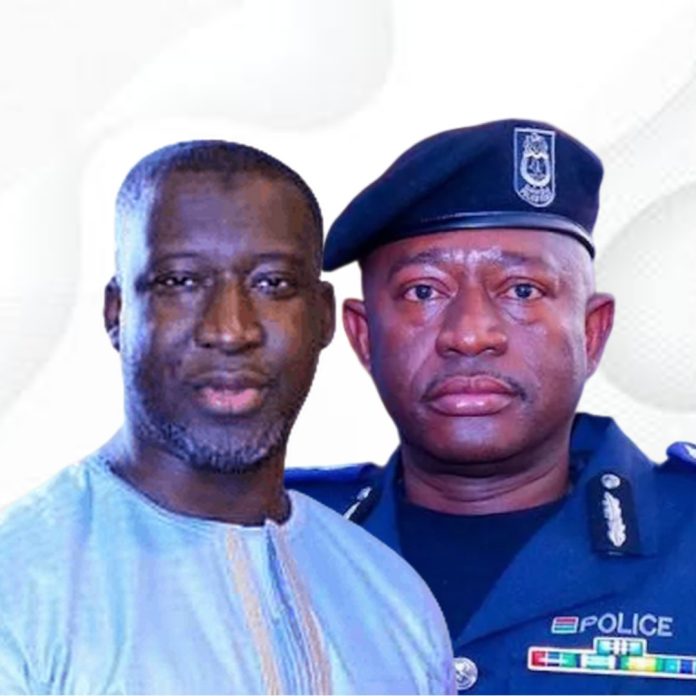
Yesterday, ASP Mberry Touray, an IT officer at the police, provided testimony in the ongoing sedition prosecution of opposition UDP executive member Ebrima Dibba before Principal Magistrate Muhammed Krubally of the Banjul court.
Touray stated that he was directed by his superior, Superintendent Yusupha Saine, to assist a CID officer in the investigation of a WhatsApp audio that he had downloaded and subsequently uploaded to a USB drive.
Subsequently, he elaborated on the audio, the process of downloading, and the USB drive.
The prosecution requested that the USB flash drive, a certificate dated June 10, and a mobile phone be admitted as evidence.
Nevertheless, defence attorney AA Bensouda raised an objection.
Initially, we object to the flash drive on the basis of procedure. A storage device that is purported to contain a file or files should be presented to the court so that both the defence counsel and the court can view the content in order to make an appropriate objection.
The current procedure is akin to the prosecution attempting to submit a sealed envelope without the court or the accused witnessing the document that is purportedly contained within the envelope. Counsel Bensauda stated, “We refer the court to the case of Alagie Sarjo Sissoho vs Northan Association Cooperation Ltd 172 ER 1438.”
He also argued that the prosecution must provide media devices in court when they submit a flash drive, a video recording, or an audio recording. This will allow the content to be presented to the court and the opposing party, and the objection can be raised if necessary.
“We are fundamentally in compliance with section three of the Evidence Act on relevance, as we are unaware of the speaker, the language, the content, and the date of the audio recording.” The fundamental foundation of admissibility is now relevance. It is not permissible to submit it if it is inadmissible. Bensouda emphasised that the document’s admissibility cannot be determined if it is irrelevant, and the relevance cannot be assessed if the content of the document is not visible or audible.
He also contended that it is a customary practice in “common law jurisdiction” to provide a hard copy of a statement in either video or audio format for the other party or the court to evaluate its relevance. Additionally, the other party or the court must be able to view and hear the video or audio in order to make the same determination.
Therefore, the prosecution has neglected to provide a description of any single device in the document production, which is a violation of section 224 B. Consequently, we implore the court to reject the flash drive,” Bensouda stated.
In response to the defense’s objections, Commissioner A Sanneh, the primary prosecutor, stated that counsel’s objection is misconceived and baseless. He urged the court to reject the objections.
Nevertheless, the presiding magistrate postponed the case until 2:15 p.m. tomorrow to render a decision.


